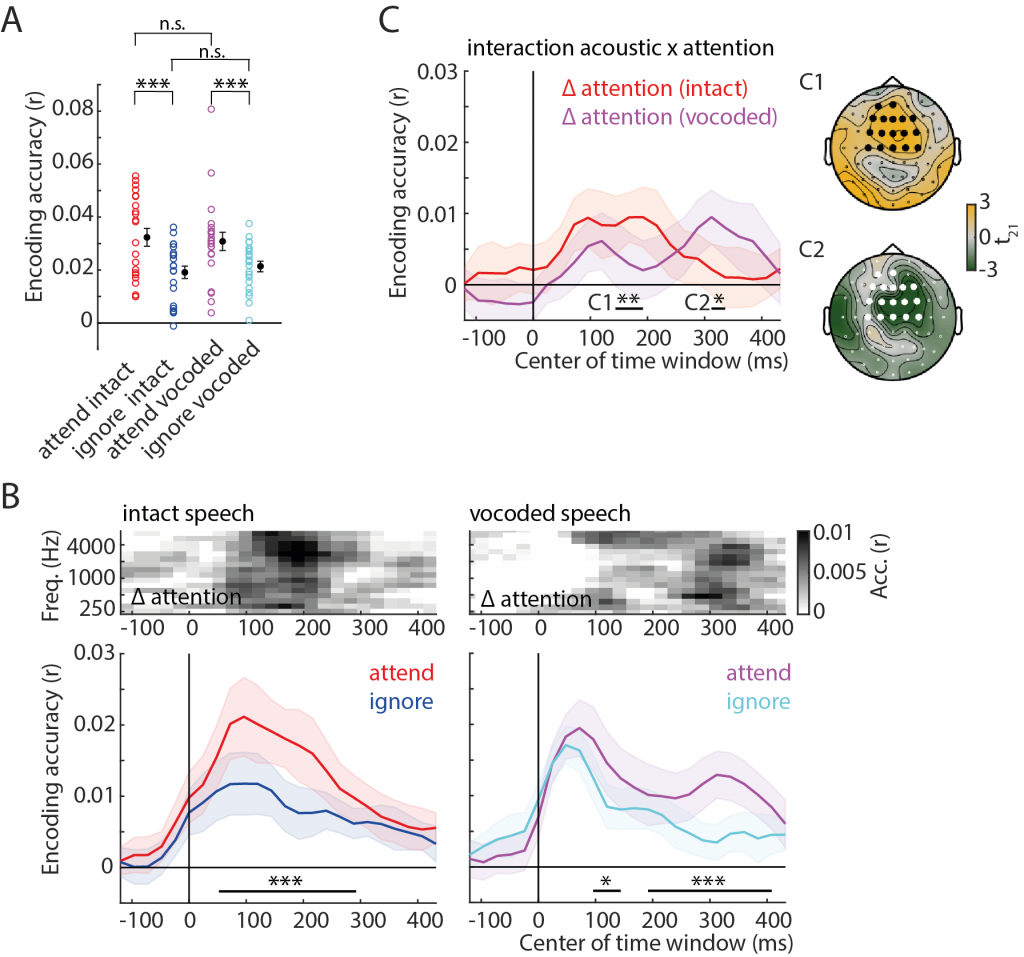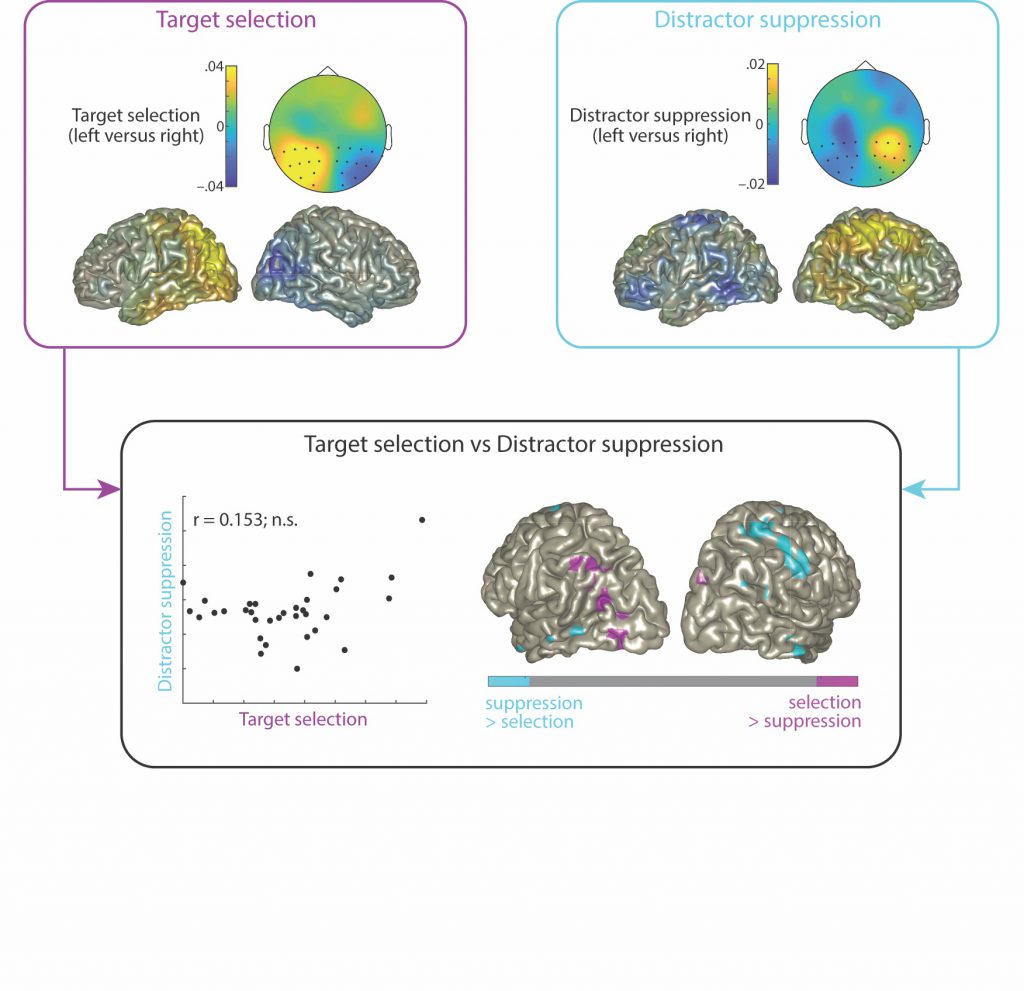Frauke Kraus, Sarah Tune, Anna Ruhe, Jonas Obleser & Malte Wöstmann demonstrate that unilateral acoustic degradation delays attentional separation of competing speech.
Unilateral cochlear implant (CI) users have to integrate acoustically intact speech on one ear and acoustically degraded speech on the other ear. How interact unilateral acoustic degradation and spatial attention in a multitalker situation?
N = 22 participants took part in a competing listening experiment while listening to an intact audiobook under distraction of an acoustically degraded audiobook and vice versa. Speech tracking revealed not per se reduced attentional separation of acoustically degraded speech but instead a delay in time compared to intact speech. These findings might explain listening challenges experienced by unilateral CI users.
To learn more, the paper is available here.



